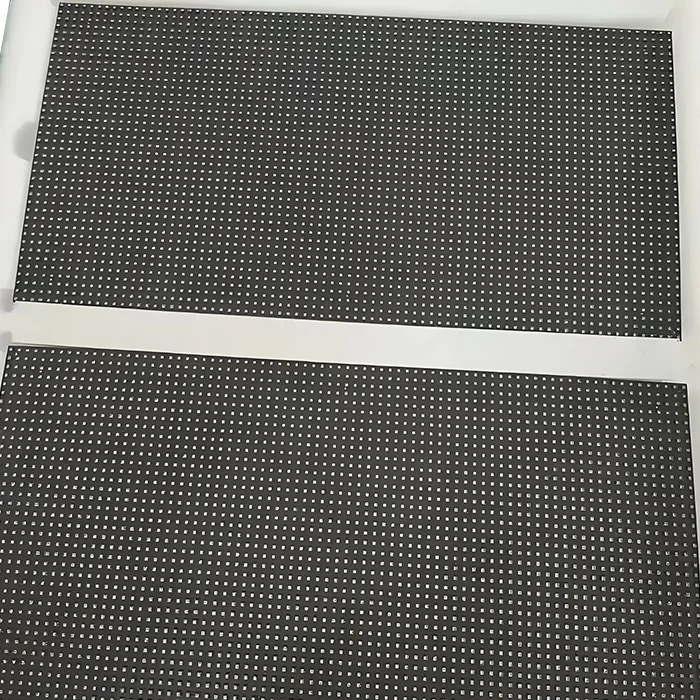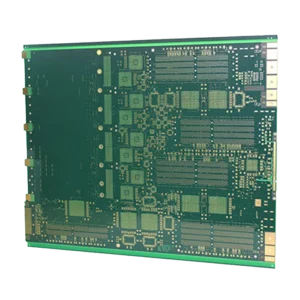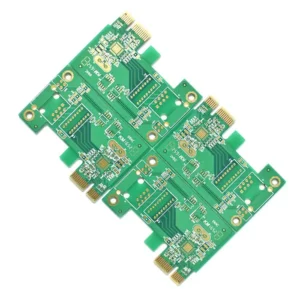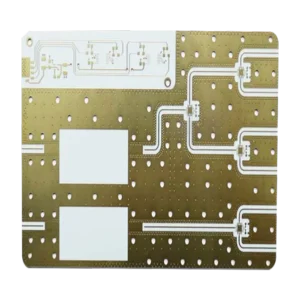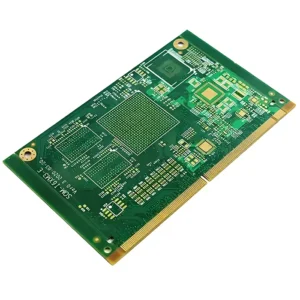SMD LED PCB Board
$25.90
SMD LED PCB board, or Surface-Mounted Device Printed Circuit Board, is capable of accommodating multiple SMD components that are directly mounted on the surface. SMD LEDs PCBs are compact and efficient light sources, so as to save space and cost and achieve more intricate designs. These boards are commonly used in modern electronics, providing versatility in lights, automotives, monitors, and more.
Shipping fee and delivery date to be negotiated. Send inquiry for more details.
Your payment information is processed securely. We do not store credit card details nor have access to your credit card information.
Claim a refund if your order is missing or arrives with product issues, our support team would deal with your refund within 24 hours.
| Layer Counts | 2L |
| Base Material | FR4 |
| Board Thickness(mm) | 1.0mm |
| Max board size(mm) | 570*1200mm |
| PCB size tolerance | ±0.2mm |
| Min. Hole Size | 0.15mm |
| Min. Line Width | 4mil |
| Copper Weight | 1oz |
| Surface Finish | ENIG |
| Certificate | UL, RoHS, ISO, ISO9001, ISO13485, IPC610, and REACH |
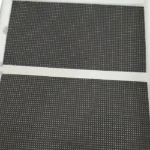 SMD LED PCB Board
SMD LED PCB Board
| 5 star | 0% | |
| 4 star | 0% | |
| 3 star | 0% | |
| 2 star | 0% | |
| 1 star | 0% |
Sorry, no reviews match your current selections
Questions & Answers
1. Where does MOKOPCB ship from and to?
We deliver our goods from our facilities in Shenzhen, China.
2. Why recommend choosing SMD LED PCB? What are its advantages?
Compared to traditional LED PCBs. SMD LED PCB has its unique characteristics. It has great space efficiency, which is 50–70% smaller than traditional through LED PCBs. It possesses high brightness but saves energy, achieving 100–200 lumens per watt with lower power consumption. What’s more, it can be designed with various shapes and sizes, and it also performs well in thermal management.
3. What are the common SMD LED sizes? Which one is the brightest?
Common SMD LED types include 2835, 3528, 3014, 5050, 5630, 3030, and 3535, applied in various lighting applications, such as strips, backlighting, and high-power light. 5630 is typically the brightest one per signal LED at 40lm/W or more.
4. Are SMD LED PCBs waterproof?
Standard SMD PCBs are not waterproof, but we can take some additional protection to make them water-resistant, such as conformal coating, epoxy encapsulation, or silicone potting, which is widely used in outdoor LED strips and automotive lighting. If necessary, we also support IP65 or pre-sealed LED models.
5. How to choose the right PCB material for SMD LEDs?
To choose the right PCB material for SMD LEDs, we will consider your thermal, mechanical, and cost needs. The metal PCBs, like aluminum, are better for heat dissipation. FR4 PCBs perform poorly in thermal performance but work well for low-power LEDs in cost-effective applications. If you need flexible SMD LED, we recommend a Polyimide-based PCB for bendability. If it is used in harsh environments, we may use ceramic PCBs for superior thermal and moisture resistance.
6. How do you solder SMD components onto a PCB?
Soldering SMD components on a PCB requires a fine-tip soldering iron, flux, and thin solder wire for precision. Applying flux, workers tack the pad with solder to anchor the components.

